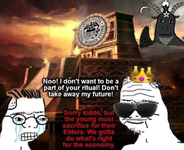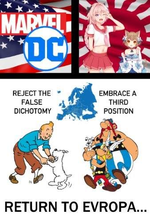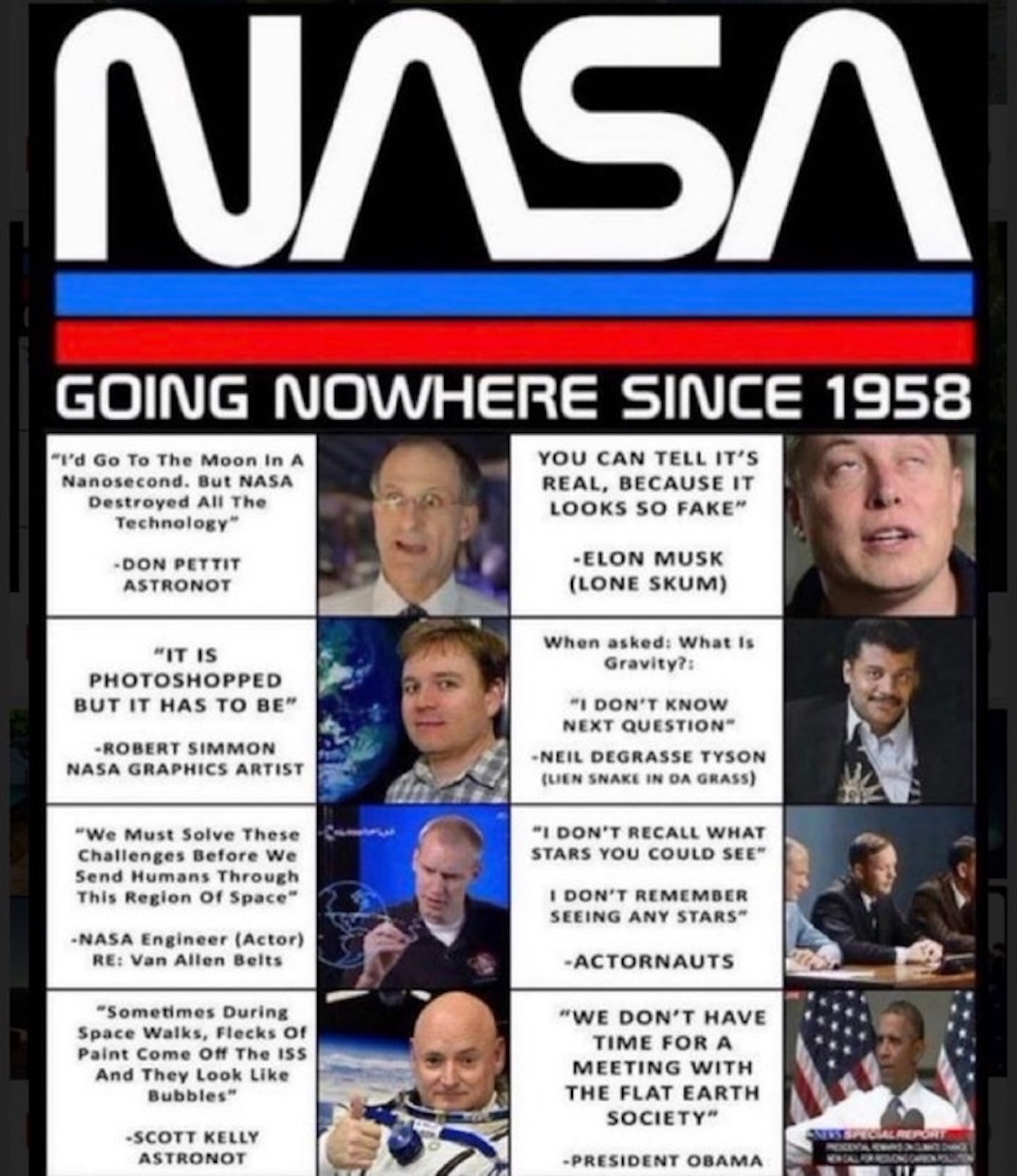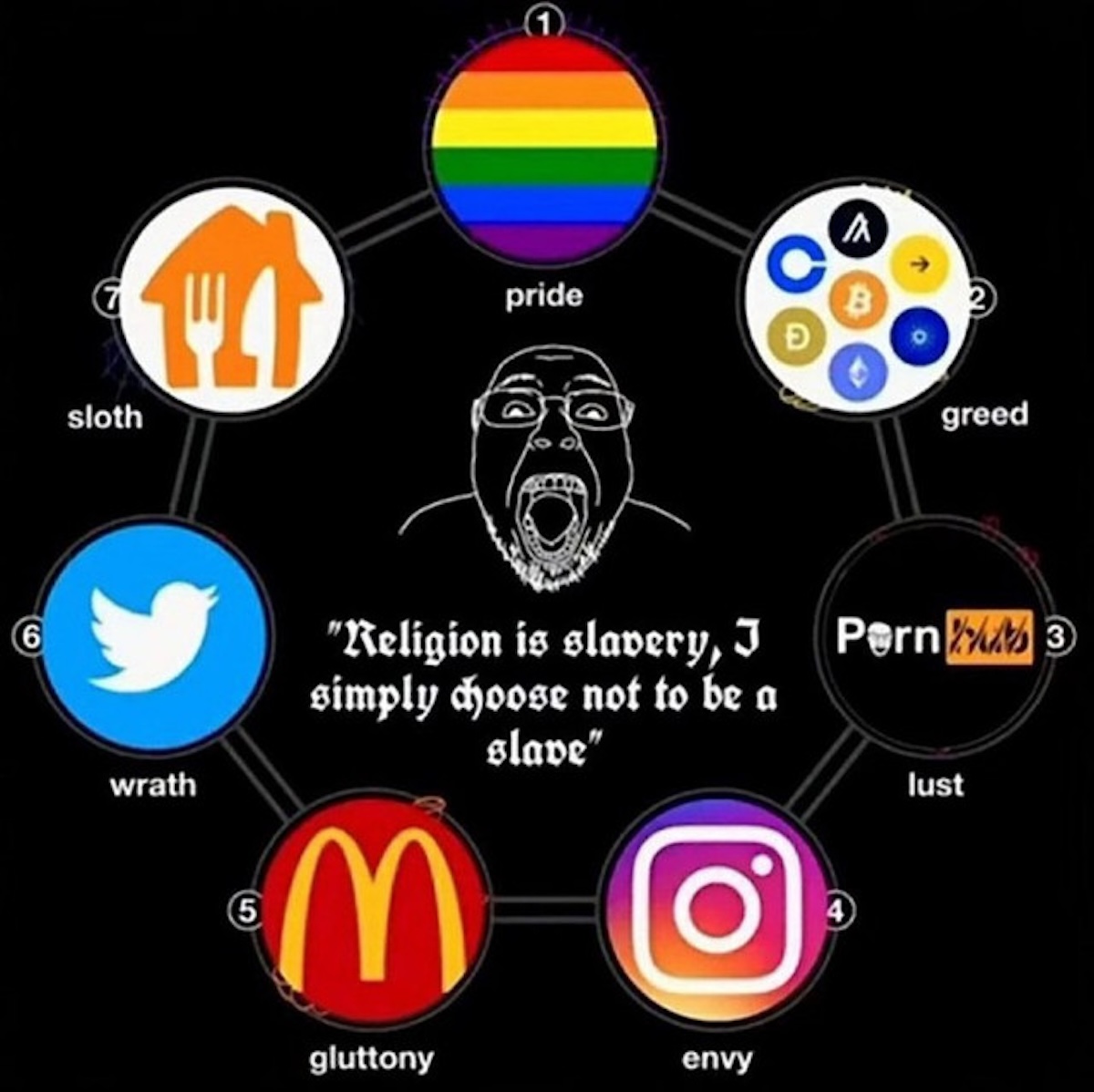Im sure the demographics of their homeless is much different than the USA.
You are using an out of date browser. It may not display this or other websites correctly.
You should upgrade or use an alternative browser.
You should upgrade or use an alternative browser.
Memes and GIFs That Will Instantly Trigger Leftists & Normies
- Thread starter Gradient
- Start date
That’s the typical stuff you see from Reddit in communist threads.
US has 50X the population of Finland. You can’t compare a small country with homogenous population with something like the States.
For comparison, California spends +$100 BILLION with welfare. That’s a third of Finland GDP.
Same with the trillions poured in Africa or giving housing, food, job quotas, phones, etc to certain group.
As a tax-paying citizen, I’m upset when I see stuff like that. Another excuse for getting a bigger cut from my paycheck. It’s always nice to be generous with someone else’s money.
I just like memes.
Kingdom
Orthodox

"If you don't support free-market capitalism you are a communist" Jewish false dichotomy.
Hitler was also a kind of socialist. Communism and capitalism are two sides of the same clipped coin, artificial ideologies invented after the French revolution that promote egotism, hyper-individualism and alienation on the one hand, and collectivism and etatism on the other. Not very Christian, either of them.
People who put "the shekels must flow" and the golden calf of economy before the well-being of their fellow citizen should not complain for being ruled by a foreign alienated moneyed class who do exactly the same by putting their interests above the goyim of the land.“Both in public and in private Hitler opposed free-market capitalism because it "could not be trusted to put national interests first", arguing that it holds nations ransom in the interests of a parasitic cosmopolitan rentier class. He believed that international free trade would lead to global domination by the British Empire and the United States, which he believed were controlled by Jewish bankers in Wall Street and the City of London.
Hitler distrusted free-market capitalism for being unreliable due to its egotism and preferred a state-directed economy that maintains private property and competition but subordinates them to the interests of the Volk and Nation.
Hitler told a party leader in 1934: "The economic system of our day is the creation of the Jews". He said to Benito Mussolini that capitalism had "run its course". Hitler also said that the business bourgeoisie "know nothing except their profit. 'Fatherland' is only a word for them." Hitler was personally disgusted with the ruling bourgeois elites of Germany during the period of the Weimar Republic, whom he referred to as "cowardly shits".”
- R.J Overy, "The Dictators: Hitler's Germany and Stalin's Russia"


The world and its riches are God's, not ours, so if it is given to us we should also give unto others "for the entire law is fulfilled in keeping this one command: “Love your neighbor as yourself.”" (Galatians 5:14). Miserliness is a Jewish trait anyway and in a healthy nation puting the almighty dollar ahead of the vital interests of one's society should be considered a crypto-jewish behavior.
"Just as a healthy human avoids excessive or unhealthy eating and drinking and exercises appropriately, so a healthy nation privileges independence, cooperation and an almost military morale over a purely economic prosperity and consumerism, on the one hand, or a totally controlled centralised economic planning, on the other."
[…]
"In both Marxism and free-market economies we find the same materialistic, antipolitical, and social view detaching the social order and people from any higher order and higher goal, positing what it is “useful” as the only purpose (understood in a physical, vegetative, and earthly sense); by turning the “useful” into a criterion of progress, the values proper to every traditional structure are inverted."
- Julius Evola
"Unfortunately, in some people the economic dominates the political, ethical and religious. This psychological condition is a mental illness, la daimonia dell’economia (demonic possession by the economy). (…) The state’s economic policy should aim at autarchy, supplying its own needs and healthy desires, without depending on free trade with other countries or finance capitalism.
The tendency to converge every value and interest on the economic and productive plane is not perceived by Western man as an unprecedented aberration, but instead as something normal and natural, and not as an eventual necessity, but as something that must be accepted, willed, developed, and praised.
This subversive character is found both in Marxism and in its apparent nemesis, modern capitalism. Thus, it is absurd and deplorable for those who pretend to represent the political “Right” to fail to leave the dark and small circle that is determined by the demonic power of the economy—a circle including capitalism, Marxism, and all the intermediate economic degrees.
This should be firmly upheld by those who today are taking a stand against the forces of the Left. Nothing is more evident than that modern capitalism is just as subversive as Marxism. The materialistic view of life on which both systems are based is identical; both of their ideals are qualitatively identical, including the premises connected to a world the center of which is constituted of technology, science, production, “productivity,” and “consumption.”
We must declare in an uncompromising way that in a normal civilization the economy and economic interests—understood as the satisfaction of material needs and their more or less artificial appendices—have always played, and always will play, a subordinated function. We must also uphold that beyond the economic sphere an order of higher political, spiritual, and heroic values has to emerge, an order that neither knows nor tolerates merely economic classes and does not know the division between “capitalists” and “proletarians”
[…]
Thus, in order to posit a new principle, what is needed is not to oppose one economic formula with another, but instead to radically change attitudes, to reject without compromise the materialistic premises from which the economic factor has been perceived as absolute.
Despite the fact that the antithesis between capitalism and Marxism dominates the background of recent times, it must be regarded as a pseudo-antithesis. In free-market economies, as well as in Marxist societies, the myth of production and its corollaries (e.g., standardization, monopolies, cartels, technocracy) are subject to the “hegemony” of the economy, becoming the primary factor on which the material conditions of existence are based.
Both systems regard as “backward” or as “underdeveloped” those civilizations that do not amount to “civilizations based on labor and production”—namely, those civilizations that, luckily for themselves, have not yet been caught up in the feverish industrial exploitation of every natural resource, the social and productive enslavement of all human possibilities, and the exaltation of technical and industrial standards; in other words, those civilizations that still enjoy a certain space and a relative freedom.
Thus, the true antithesis is not between capitalism and Marxism, but between a system in which the economy rules supreme (no matter in what form) and a system in which the economy is subordinated to extra-economic factors, within a wider and more complete order, such as to bestow a deep meaning upon human life and foster the development of its highest possibilities.
This is the premise for a true restorative reaction, beyond “Left” and “Right,” beyond capitalism’s abuses and Marxist subversion. The necessary conditions are an inner detoxification, a becoming “normal” again (“normal” in the higher meaning of the term), and a renewed capability to differentiate between base and noble interests.
The pure homo oeconomicus is a fiction or the by-product of an evidently degenerated specialization. Thus, in every normal civilization a purely economic man—that is, the one who sees the economy not as an order of means but rather as an order of ends to which he dedicates his main activities—was always rightly regarded as a man of lower social extraction: lower in a spiritual sense, and furthermore in a social or political one. In essence, it is necessary to return to normalcy, to restore the natural dependency of the economic factor on inner, moral factors and to act upon them.
[…]
...it can legitimately be claimed that the so-called improvement of social conditions should be regarded not as good but as evil, when its price consists of the enslavement of the single individual to the productive mechanism and to the social conglomerate; or in the degradation of the State to the “State based on work,” and the degradation of society to “consumer society”; or in the elimination of every qualitative hierarchy; or in the atrophy of every spiritual sensibility and every “heroic” attitude.
America ... has created a 'civilization' that represents an exact contradiction of the ancient European tradition. It has introduced the religion of praxis and productivity; it has put the quest for profit, great industrial production, and mechanical, visible, and quantitative achievements over any other interest. It has generated a soulless greatness of a purely technological and collective nature, lacking any background of transcendence, inner light, and true spirituality. America has [built a society where] man becomes a mere instrument of production and material productivity within a conformist social conglomerate.
Hegel wrote,“Happiness is not to be found in the history of the world [in the sense of material comfort and social prosperity]; even the few happy periods found here and there are like white pages.” But even at an individual level, the qualities that matter the most in a man and make him who he is often arise in harsh circumstances and even in conditions of indigence and injustice, since they represent a challenge to him, testing his spirit; what a sad contrast it is when the human animal is granted a maximum of comfort, an equal share in a mindless and “bovine” happiness, an easy and comfortable life filled with gadgets, radio and TV programs, planes, Hollywood, sports arenas, and popular culture at the level of Reader’s Digest."
- Julius Evola, "Men Among the Ruins: Post-War Reflections of a Radical Traditionalist"

Who are we kidding? Most will never realize that.
Anglin's April Fool's Day Meme Page is one of the best I've seen in a LOOOONG time.
Just go read the whole list there.
Boy, went through quite the range of emotions reading those.
I'll post a couple for posterity.



Just go read the whole list there.
Boy, went through quite the range of emotions reading those.
I'll post a couple for posterity.



It would be great if it gets traction. Wonder how long it’ll take from the Jews to reverse action against white people. Would love to see them getting a taste of their own medicine.
I feel sorry for any African man that brings jewish genetics into his family.
There was some beauty’s in among that compilation. This one really tickled my fancy.Anglin's April Fool's Day Meme Page is one of the best I've seen in a LOOOONG time.
Just go read the whole list there.
Boy, went through quite the range of emotions reading those.
I'll post a couple for posterity.















